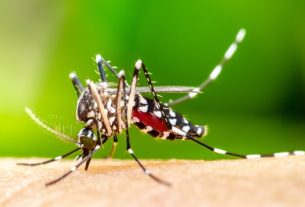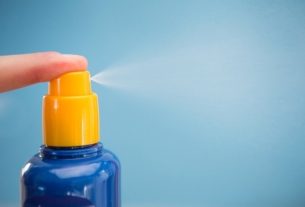Medicines that can be used to alleviate dengue symptoms and that are generally recommended by a doctor are paracetamol (Tylenol) and dipyrone (Novalgina), which help to reduce fever, in addition to relieving pain and discomfort.
During dengue treatment it is essential to rest and drink plenty of fluids and, if the person presents symptoms such as severe abdominal pain, persistent vomiting, blood in the stool or urine, it is recommended to go to the hospital immediately, as this could be a sign of hemorrhagic dengue or any other complication of dengue. Find out what the main complications of dengue are.
It is important to highlight that The use of medicines for dengue fever must be guided by the doctor, and self-medication should always be avoided, as it can cause side effects or worsen the disease.

Remedies recommended for dengue
The remedies that may be recommended by the doctor for dengue are:
1. Paracetamol
Paracetamol is an analgesic and antipyretic that may be recommended by your doctor to help reduce fever and relieve headache or muscle pain. Know how to identify all the symptoms of dengue.
This medicine can be found in the form of tablets, syrup or drop solution, and should be used with medical advice. See how to take paracetamol.
Paracetamol should not be used by people who have liver problems, such as liver failure, or who abuse or constantly use alcoholic beverages.
2. Dipyrone
Dipyrone is another analgesic and antipyretic that may be recommended by your doctor to alleviate dengue symptoms, such as fever, body aches, headaches or general malaise.
This medicine can be found in the form of drops, tablets, syrup or suppositories, and should only be used under medical advice. See how to take dipyrone.
Dipyrone should not be used by people who have impaired bone marrow function, diseases related to the production of blood cells or who are allergic to dipyrone or other medicines for fever or pain, such as acetylsalicylic acid, paracetamol, diclofenac, ibuprofen, indomethacin or naproxen, for example.
Read too: How to relieve dengue symptoms at home
3. Metoclopramide
Metoclopramide is an antiemetic that may be recommended by your doctor to relieve nausea and vomiting caused by dengue fever.
This medicine can be found in the form of tablets, drops or oral solution, and should only be used under medical advice. Find out how to take metoclopramide.
Metoclopramide should not be used by children under 1 year of age, by people who have hemorrhage, mechanical obstruction or gastrointestinal perforation, epilepsy, pheochromocytoma, Parkinson’s disease or movement disorder.
During pregnancy or breastfeeding, metoclopramide should only be used if indicated by your doctor.
4. Bromoprida
Bromopride is another antiemetic that may be indicated for dengue fever, as it helps to relieve nausea and vomiting.
This medicine can be found in pharmacies or drugstores in the form of capsules, tablets or drops, and should be used with a doctor’s advice. See how to take bromopride correctly.
Bromopride is contraindicated for children under 1 year of age, for pregnant or breastfeeding women, or for people who have gastrointestinal bleeding, obstruction or perforation, epilepsy or pheochromocytoma.
5. Loratadine
Loratadine is an antiallergic medicine indicated to relieve intense itching of the skin caused by dengue fever.
This remedy should only be used under medical advice and can be found in the form of syrup or tablets. Learn how to use loratadine.
Loratadine should not be used by children under 2 years of age, pregnant or breastfeeding women and people who have asthma, kidney or liver failure.
Other antiallergic drugs that may be recommended by your doctor are desloratadine or hydroxyzine, for example.
6. Oral rehydration salts
Oral rehydration solutions help replace fluids and minerals that are lost due to vomiting, preventing dehydration. Check out all the symptoms of dehydration.
Some examples of solutions that may be recommended for oral rehydration are Floralyte, Hidrafix, Rehidrat or Pedialyte, for example.
Furthermore, homemade serum is also a great option for oral rehydration. See how to prepare homemade serum.
In cases of severe dehydration, the doctor may recommend hospitalization to receive intravenous serum.
In addition to the remedies recommended for dengue, there are also vaccines that protect the body against this disease, and are recommended for people who have never had dengue or who have had dengue previously. Know when to get the dengue vaccine.
Medicines that should not be used against dengue fever
Some examples of medicines that are contraindicated in case of denguedue to the risk of worsening the disease, are:
These remedies are contraindicated in cases of dengue fever or suspected dengue fever, as they can worsen bleeding and hemorrhages..
Is Ivermectin good for dengue fever?
Ivermectin is not useful for dengue fever, as it is an antiparasitic that has no proven effect and no studies that show that it can combat the dengue virus and/or reduce the viral load.
Therefore, the use of ivermectin is not indicated for the treatment or prevention of dengue.
Homeopathic remedy for dengue
The homeopathic remedy against dengue is Proden, which is made from rattlesnake venom and is approved by Anvisa.
This medication is indicated to help treat dengue symptoms, such as body pain, malaise, headache, nausea or eye pain, for example.
The homeopathic remedy for dengue should only be used if indicated by a doctor, and is contraindicated for children under 2 years of age, pregnant or breastfeeding women, or people with allergies to the components of the formula or lactose intolerance.
Home remedy for dengue
In addition to pharmacy medicines, teas that alleviate dengue symptoms can also be used, such as:
- Headache: peppermint, petasite;
- Nausea and nausea: chamomile and peppermint;
- Muscle pain: Saint John’s herb.
However, teas made from ginger, garlic, willow, weeping, wicker, wicker, parsley, boldo-do-chile, rosemary, oregano, thyme and mustard should be avoided, as these plants worsen dengue symptoms and increase the chances of bleeding and hemorrhages.
In addition to teas that can be used to alleviate dengue symptoms, it is also recommended to maintain hydration by drinking fluids, such as water, natural fruit juices and homemade serum. Find out how to prepare dengue teas.

Sign up for our newsletter and stay up to date with exclusive news
that can transform your routine!
Warning: Undefined array key "title" in /home/storelat/public_html/wp-content/plugins/link-whisper-premium/templates/frontend/related-posts.php on line 12
Warning: Undefined array key "title_tag" in /home/storelat/public_html/wp-content/plugins/link-whisper-premium/templates/frontend/related-posts.php on line 13


